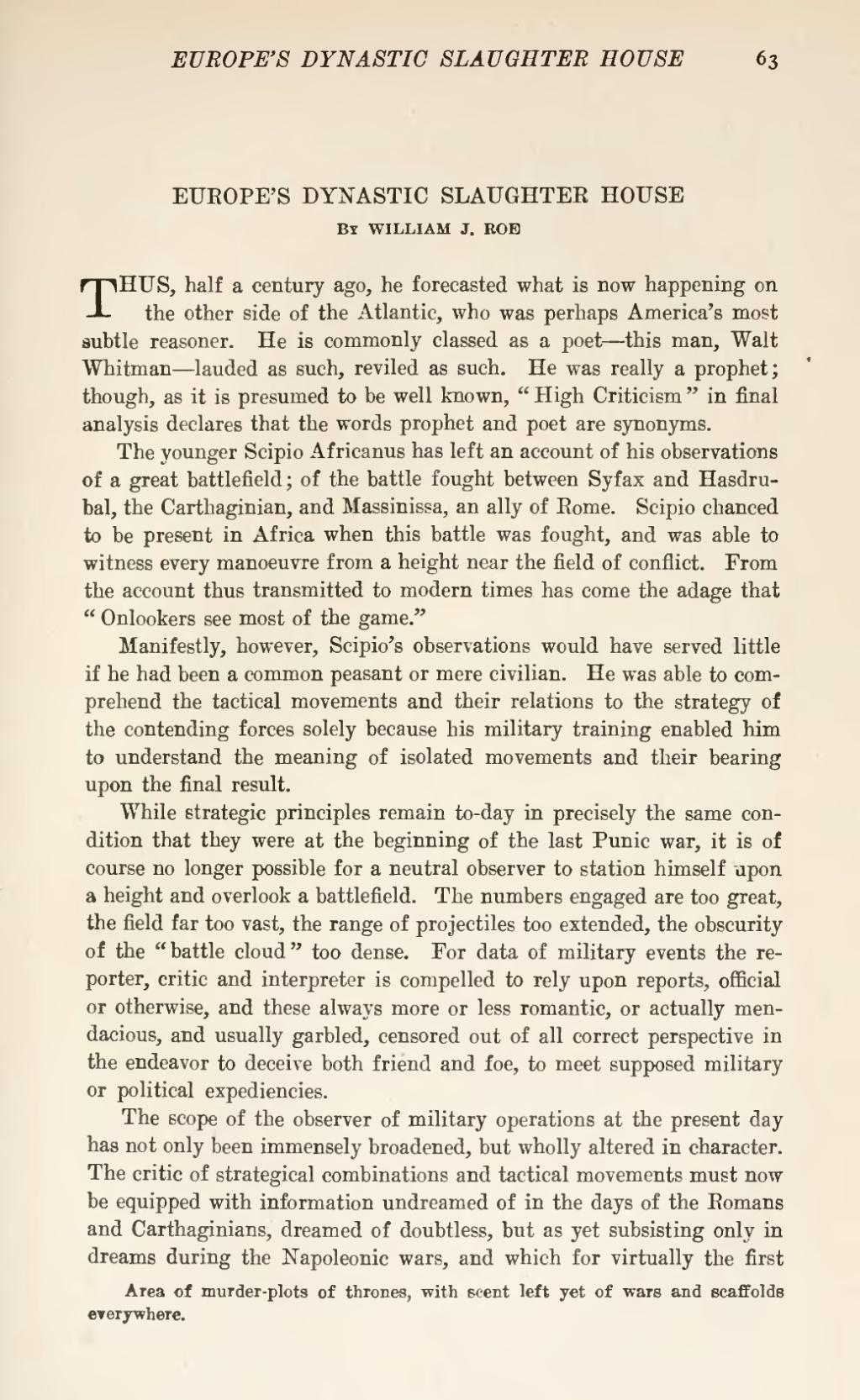| EUROPE'S DYNASTIC SLAUGHTER HOUSE |
By WILLIAM J. ROE
THUS, half a century ago, he forecasted what is now happening on the other side of the Atlantic, who was perhaps America’s most subtle reasoner. He is commonly classed as a poet—this man, Walt Whitman—lauded as such, reviled as such. He was really a prophet; though, as it is presumed to be well known, "High Criticism" in final analysis declares that the words prophet and poet are synonyms.
The younger Scipio Africanus has left an account of his observations of a great battlefield; of the battle fought between Syfax and Hasdrubal, the Carthaginian, and Massinissa, an ally of Rome. Scipio chanced to be present in Africa when this battle was fought, and was able to witness every manoeuvre from a height near the field of conflict. From the account thus transmitted to modern times has come the adage that "Onlookers see most of the game."
Manifestly, however, Scipio’s observations would have served little if he had been a common peasant or mere civilian. He was able to comprehend the tactical movements and their relations to the strategy of the contending forces solely because his military training enabled him to understand the meaning of isolated movements and their bearing upon the final result.
While strategic principles remain to-day in precisely the same condition that they were at the beginning of the last Punic war, it is of course no longer possible for a neutral observer to station himself upon a height and overlook a battlefield. The numbers engaged are too great, the field far too vast, the range of projectiles too extended, the obscurity of the "battle cloud" too dense. For data of military events the reporter, critic and interpreter is compelled to rely upon reports, official or otherwise, and these always more or less romantic, or actually mendacious, and usually garbled, censored out of all correct perspective in the endeavor to deceive both friend and foe, to meet supposed military or political expediencies.
The scope of the observer of military operations at the present day has not only been immensely broadened, but wholly altered in character. The critic of strategical combinations and tactical movements must now be equipped with information undreamed of in the days of the Romans and Carthaginians, dreamed of doubtless, but as yet subsisting only in dreams during the Napoleonic wars, and which for virtually the first
Area of murder-plots of thrones, with scent left yet of wars and scaffolds everywhere.
This text is out of place in the original. It is a quote from Whitman’s "Leaves of Grass" (the same source as the title of Roe’s article). Why it was put at the bottom of the page is a mystery; perhaps as an abortive footnote? (Wikisource contributor note)

